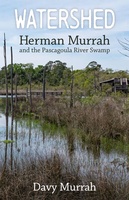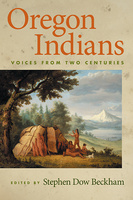Cult, Culture, and Authority
Princess Lieu Hanh in Vietnamese History
Climate Justice and Public Health
Realities, Responses, and Reimaginings for a Better Future
Chasing Traces
History and Ethnography in the Uplands of Socialist Asia
Basic Okinawan
From Conversation to Grammar
Alternative Politics in Contemporary Japan
New Directions in Social Movements
A Brief History of Early Okinawa Based on the Omoro Sōshi
Watershed
Herman Murrah and the Pascagoula River Swamp
How one heroic preservationist saved a natural wonder from destruction
Shaolin Brew
Race, Comics, and the Evolution of the Superhero
A thorough examination of Blaxploitation and Kung Fu comics
Oregon Indians
Voices from Two Centuries
In this deeply researched volume, Stephen Dow Beckham brings together commentary by Native Americans about the events affecting their lives in Oregon. Now available in paperback for the first time, this volume presents first-person accounts of events threatening, changing, and shaping the lives of Oregon Indians, from “first encounters” in the late eighteenth century to modern tribal economies.
The book's seven thematic sections are arranged chronologically and prefaced with introductory essays that provide the context of Indian relations with Euro-Americans and tightening federal policy. Each of the nearly seventy documents has a brief introduction that identifies the event and the speakers involved. Most of the book's selections are little known. Few have been previously published, including treaty council minutes, court and congressional testimonies, letters, and passages from travelers’ journals.
Oregon Indians opens with the arrival of Euro-Americans and their introduction of new technology, weapons, and diseases. The role of treaties, machinations of the Oregon volunteers, efforts of the US Army to protect the Indians but also subdue and confine them, and the emergence of reservation programs to “civilize” them are recorded in a variety of documents that illuminate nineteenth-century Indian experiences.
Twentieth-century documents include Tommy Thompson on the flooding of the Celilo Falls fishing grounds in 1942, as well as Indian voices challenging the "disastrous policy of termination," the state's prohibition on inter-racial marriage, and the final resting ground of Kennewick Man. Selections in the book's final section speak to the changing political atmosphere of the late twentieth century, and suggest that hope, rather than despair, became a possibility for Oregon tribes.





